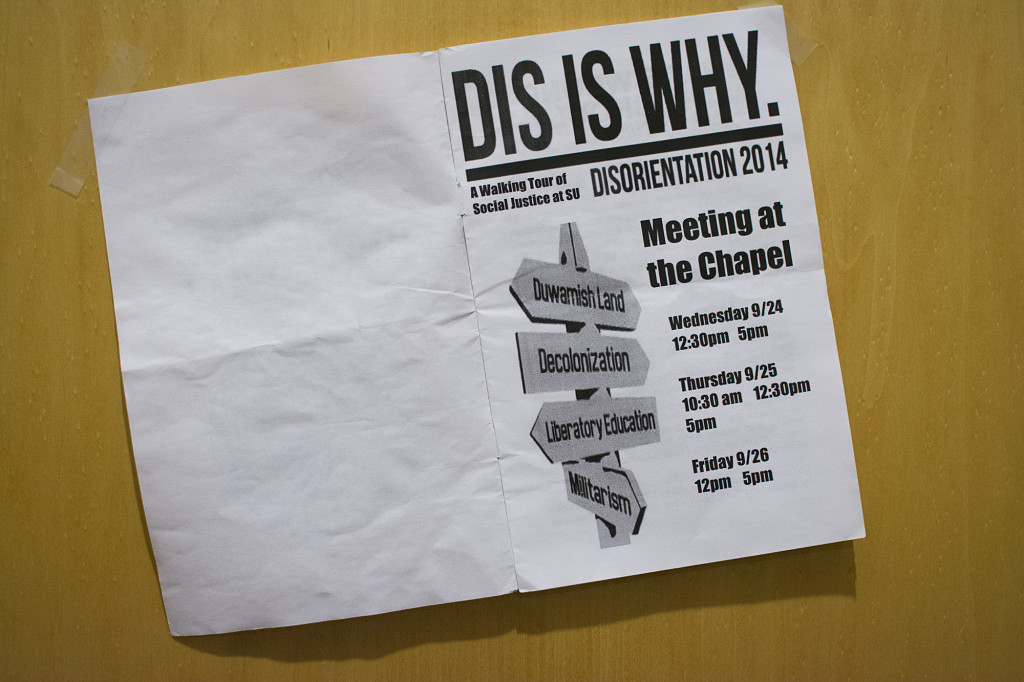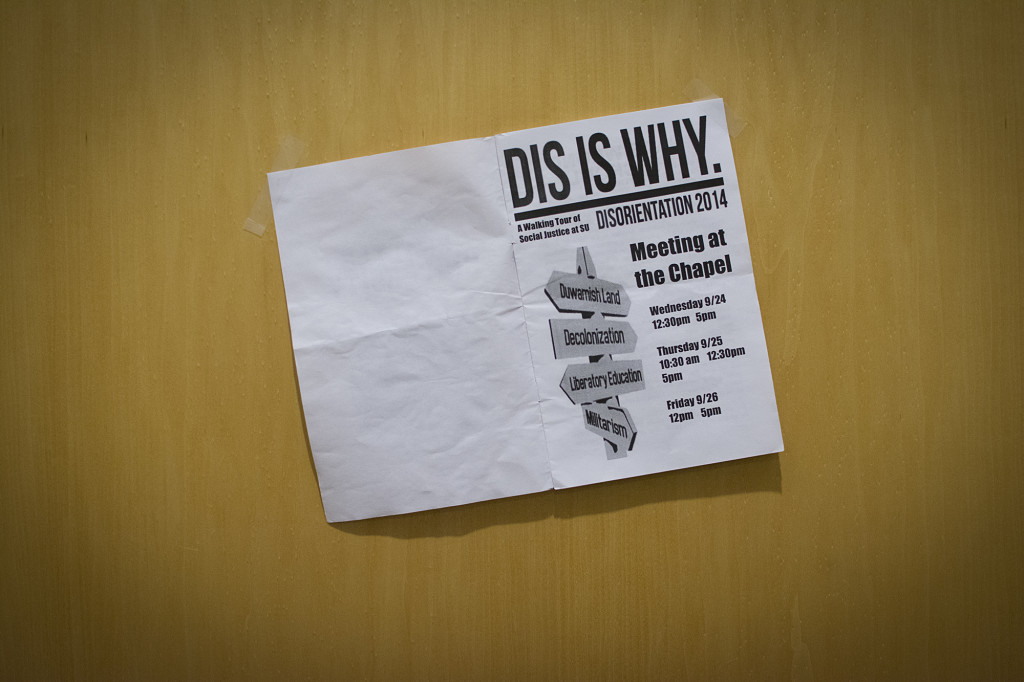During Welcome Week many students were confused by anonymous pamphlets found pushed under doors in residence halls. The message of the pamphlets appears to be that institutions of higher learning such as Seattle U are inherently bad for society and must be rebelled against. Although some students assumed that the pamphlets came from Anarchy Club, no association between the club and the pamphlets has been proven. The identity of the pamphlet author and distributer remains unknown.
This year, Anarchy Club is committed to incorporating the perspectives of alumni who have expressed interest in seeing that the club continues to thrive. Last year, several alumni provided the club with speakers who are also committed to on-campus activism. Some topics the club seeks to continue to focus on are gentrification of Capitol Hill, transgender rights, and other forms of institutionalized oppression.

During Welcome Week a group of annonymous students came through the Residents Halls and left a very information pamphlet underneath the doors.
Josh Sturman is the self-described “unofficial co-president” of the club. The qualification, he said, is due to a disciplinary jurisdiction against Sturman issued by Dean of Students Darrell Goodwin, which Sturman described as “unjust and malicious.” Sturman quasi-facetiously refers to himself as “King of the Anarchists.” He explained that any student may carry this title simply by attending an Anarchy Club meeting.
Club members will be tabling at the Club Fair on Oct. 3. They currently have two fully committed active members, two active alumni and twenty mailing list recipients. Political science professor Larry Cushnie moderates the club.
“The group offers students alternative perspectives to modern assumptions about human potential and political power,” Cushnie said in an email to The Spectator. “Participants have the opportunity to discuss both critical and normative understandings about how to organize people towards non-hierarchical, compassionate, inclusive and egalitarian communities.”
The anonymous pamphlet, however, pushed a more extreme agenda to inspire students to question authority and institutions, including Seattle U.
“The university has become a training ground for industrial robots,” the flier states. “You came here to get an education—to ask some basic questions about yourself and your values, and to decide on how to embark on your adult life. Instead you will be whipped into shape for corporations and bureaucracies—given the right attitudes, force-fed the relevant information, and tailored to the slots [SU] knows will be out there.”
The author of the pamphlet encourages students to “fight back” against institutionalization by attending one of the upcoming unofficial meetings.
The Seattle U administration was quick to respond to the pamphlet addressed to new students. In an email distributed by Housing and Residence Life, Goodwin addressed concerns about the content of the fliers. These concerns include the unauthorized use of the Seattle U seal, the anonymity of the pamphlet, the pamphlet’s use of derogatory language and the unofficial planning of meetings.
“During [Academic Convocation of Welcome Week] students were invited to join a community dedicated to scholarship, critical inquiry, and social justice,” wrote Goodwin in the recent email. “I know that over the coming months and years you will each find your own unique way to leave your mark toward a more just and humane world.”
Sturman wants to clarify the misconception that anarchists are inherently violent activists. Anarchy Club does not encourage violence to induce change.
“We are often portrayed as violent,” Sturman said. “Dorothy Day, who is up for canonization this year and has a building named for her on our campus, identified as an anarchist… Many anarchists are pacifists as well. Anarchism is the political ideology that all people should be liberated from all oppression whether that be capitalism, the state, racism, sexism, heteronormativity, transphobia.”
While it is not uncommon for students in higher education to question authority, anarchy has a particularly negative image and is often associated with chaos. Cushnie, however, rejects that interpretation.
“[Anarchic perspectives] are about acknowledging our shared humanity and finding better outcomes through a belief in the innate need for humans to work together and rely upon each other,” he said.








